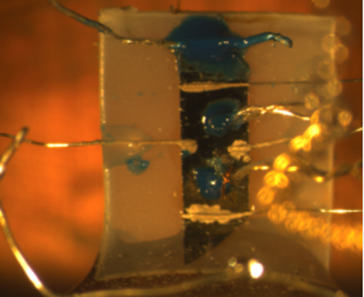
While we know that with superconductivity, electrons form pairs. Can they also condense into foursomes? According to a paper in Nature Physics, Professor Egor Babaev and collaborators at KTH Royal Institute of Technology presented evidence of fermion quadrupling in a series of experimental measurements on the iron-based material, Ba1−xKxFe2As2. Almost 20 years ago, Babaev predicted this kind of phenomenon, and 12 years ago, predicted that it could occur in the material.
The pairing of electrons enables the quantum state of superconductivity, a zero-resistance state of conductivity which is used in MRI scanners and quantum computing. It happens within a material as a result of two electrons bonding rather than repelling each other. This was first described in a theory by, Leon Cooper, John Bardeen and John Schrieffer, whose work was awarded the 1972 Nobel Prize.
Normally two electrons would strongly repel each other. However, given low temperatures in a crystal they become loosely bound in pairs, giving rise to a robust long-range order. Currents of electron pairs no longer scatter from defects and obstacles and a conductor can lose all electrical resistance, becoming a superconductor.
For a fermion quadrupling state to occur, however, there must be something that prevents condensation of pairs and prevents their flow without resistance yet allowing condensation of four-electron composites.
In 2018, Babaev’s experimental collaborator at Technische Universtät Dresden, Vadim Grinenko, found the first signs of a fermion quadrupling condensate, challenging years of prevalent science.
So far, observations indicate that fermionic quadruple condensates spontaneously break time-reversal symmetry, a mathematical operation of replacing the expression for time with its negative in formulas or equations so that they describe an event in which time runs backward or all the motions are reversed. If one inverts time direction, the fundamental laws of physics still hold.
Original Release: Eureka Alert
